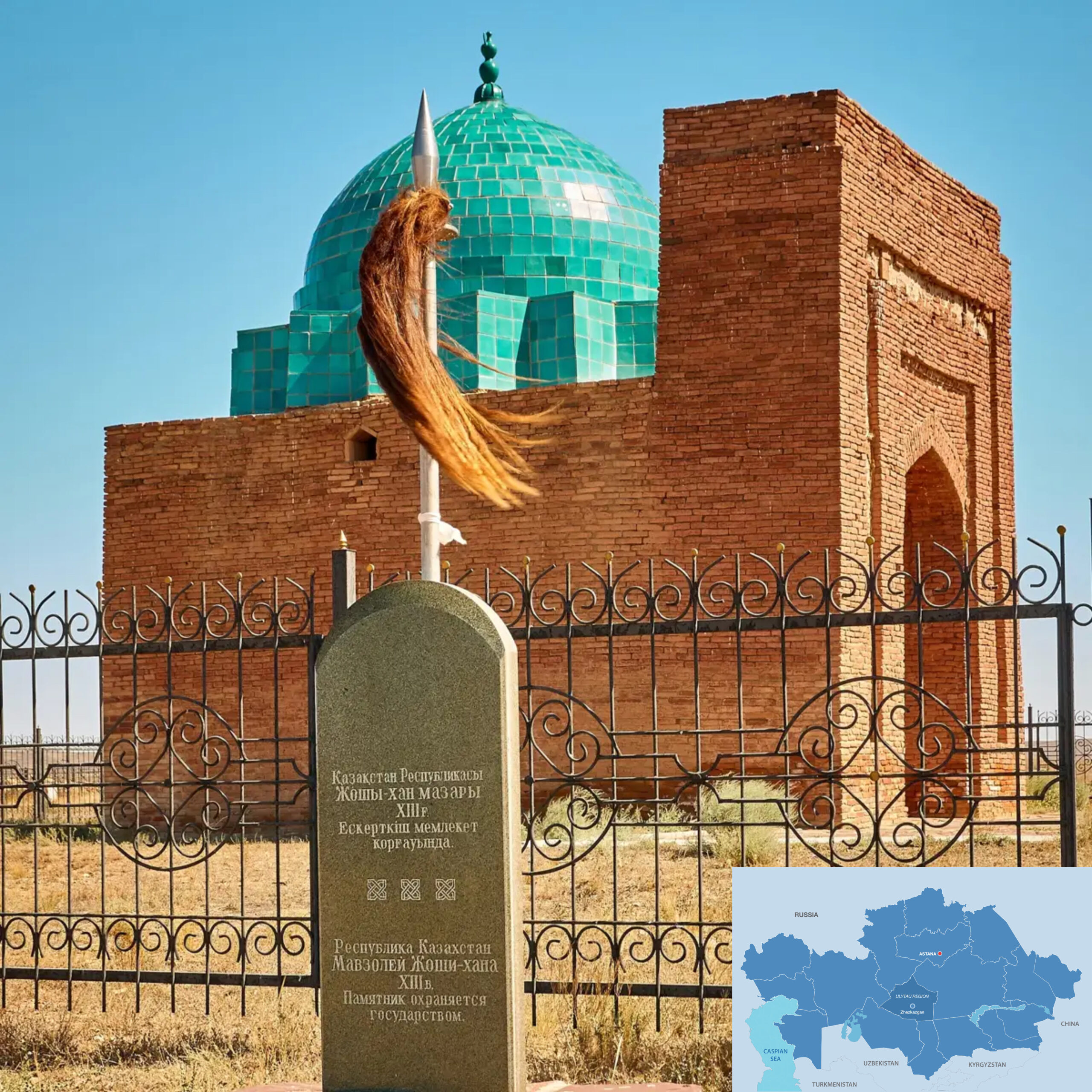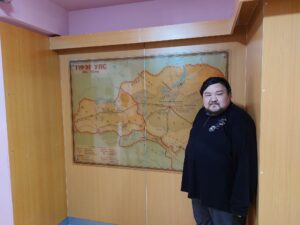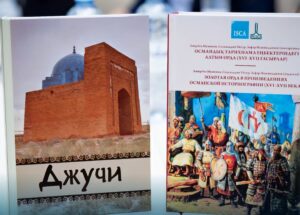ASTANA – Last year, Kazakhstan celebrated the 800th anniversary of the founding of the Ulus of Jochi, a key milestone in the history of Kazakh statehood. To investigate its heritage, influence, and significance in national history, the President of Kazakhstan initiated the establishment of the Institute for the Study of the Ulus of Jochi. Renowned historian and PhD scholar Zhaksylyk Sabitov leads the institute, which is dedicated to researching the Golden Horde and the Kazakh Khanate.

The mausoleum of Jochi Khan is located 45 km northeast of the city of Zhezkazgan ( Ulytau region). Photo credit:Kazakh Scientific Research Institute of Culture Click to see the map in full size. The map is designed by The Astana Times.
In an interview with Kazinform, Sabitov discussed the institute’s establishment, core activities, research projects, and notable achievements.

Zhaksylyk Sabitov, head of the Institute for the Study of the Ulus of Jochi. Photo credit: Sabitov’s Facebook profile
“The institute was established to address two major gaps in Kazakh history: the under-researched Golden Horde period (1206–1502) and the histories of the khanates that emerged after its dissolution. Additionally, the history of the Kazakh Khanate itself is still insufficiently explored. For some decades of the 17th century, we can barely gather enough material to write two paragraphs,” said Sabitov.
The institute’s research scope spans from the emergence of the Ulus of Jochi in 1224–1225 to the rule of Kenesary, the last all-Kazakh khan, in 1847.
Officially registered in April 2022, the institute began receiving funding in February 2023 and has undertaken significant research initiatives.
“The institute’s inaugural project examined the histories of the Chagatai, Moghulistan, and Kaidu uluses. By the end of 2024, the initiative produced approximately ten publications, including books on the Chagatai Ulus, the Moghulistan state, and an encyclopedia highlighting prominent figures from the Chagatai, Ogedei, and Kaidu uluses,” said Sabitov.

Photo credit: Ministry of Science and Higher Education’s Instagram page
In 2024, the institute achieved substantial academic output, publishing 15 articles in Scopus and Web of Science journals, alongside 61 articles in Kazakh academic journals. Highlights include translations of medieval sources such as the “Yuanshi” and “Mingshi” (Chinese chronicles), “Zubdat al-Fikra” by Rukn ad-Din Beibars (a critical source on the 13th-century history of the Ulus of Jochi), and “Sheibani-nama” by Muhammad Salih, chronicling the life of Muhammad Sheibani.
Looking ahead, Sabitov highlighted several key projects. In 2025, the institute plans to complete studies on the Kazakh Khanate and national memory, followed by a comprehensive exploration of the Golden Horde in 2026.
“We are also contributing to the third volume of Kazakhstan’s academic history, focused on the Golden Horde, and potentially the fourth, which will cover the Kazakh Khanate,” said Sabitov.
